 |
| |
Interview of Adele Diamond
by Evan McGloughlin for the
Giant’s
Shoulder podcast episode entitled,
“Meet the World’s Leading Executive
Function Neuroscientist”
A wide-ranging, 90-minute interview that touched on ADHD, why stress impairs executive functions, why addressing social and emotional needs is so improvement to improving executive functions, unusual properties of the dopamine system in prefrontal cortex, and much more.
https://youtu.be/kr7asif47bQ?si=2MHwEr08ZI6FZ7GO
|
|

|
| |
|
| |
Interview of Adele Diamond
by Mike Robbins for the online newsletter
Bottom Line Personal entitled:
“What Are Executive Functioning Skills
and How to Maintain Them?”
https://www.bottomlineinc.com/health/mental-health/what-are-executive-functioning-skills-and-how-to-maintain-them
|
|

|
| |
|
| |
The Order of Canada is Canada's highest honor.
Adele Diamond,
was just appointed an
Officer of the Order of Canada.
The citation reads:
“... she has transformed our understanding of early cognitive development and the brain’s prefrontal cortex. She has also shaped social policies, and improved medical and educational practices worldwide."
https://www.med.ubc.ca/news/three-ubc-medicine-neuroscience-experts-appointed-to-order-of-canada
|
|

|
| |
|
|
|
| |
Another of our papers was just published. This one is
co-authored by postdoc
Sarah M. Hutchison,
Dr. Tim Oberlander,
Prof. Diamond, and others:
Maternal Perinatal Depressive Symptoms,
Prenatal Maternal Selective Serotonin Reuptake
Inhibitor Antidepressants, and Executive Functions
in Children: A 12-Year Longitudinal Study
Journal of Developmental & Behavioral Pediatrics
http://dx.doi.org/10.1097/DBP.0000000000001440
|
|

|
| |
|
|
|
| |
Another paper from our lab was just published:
Adele Diamond
Insights from a Career at the Border of Developmental Psychology and Cognitive Neuroscience.
Annual Review of Developmental Psychology
vol 7, pages 1-40.
https://doi.org/10.1146/annurev-devpsych-010923-114435
|
|

|
| |
| |
A paper co-authored by
PhD student Daphne Ling and
Prof. Adele Diamond
A Qualitative Study of the Lived Experience
of Children with ADHD.
has just been published in
Behavioral Sciences.
https://doi.org/10.3390/bs15121698
|
|

|
| |
| |
Video of Prof. Diamond's talk at
COP30 – Thrive 25 session (Nov 14)
is now online:
Why Attention to Executive Functions Early
in Life is so Important for Disease-Prevention
and Health throughout Life.
* The actual talk starts about 6½ minutes in,
after the introductory remarks
https://www.youtube.com/watch?v=qpwmRzc-VDY
|
|

|
| |
|
|
|
| |
Video of the 1st of Prof. Diamond’s
90-minute in-depth talks in Singapore
#1. The Relationship between Executive Functions
and Social and Emotional Development
https://youtu.be/Onabdxt1sOw
|
|

|
| |
|
|
|
| |
Video of the 2nd of Prof. Diamond’s
90-minute in-depth talks in Singapore
#2. How Cognition is affected in ADHD, How to Help Children with ADHD Improve their Executive Functions,
& Why Stress or Anxiety can be Mistaken for ADHD
https://youtu.be/EOG89c3_OkE
|
|

|
| |
|
|
|
| |
Video of the 3rd of Prof. Diamond’s
90-minute in-depth talks in Singapore
#3. The Positive Impact of Motor Skill Development on Executive Functions.
https://youtu.be/mFX3wt3fsG4
|
|

|
| |
|
|
|
| |
Video of the 4th of Prof. Diamond’s
90-minute in-depth talks in Singapore
#4. How to Improve the Executive Functions of Caregivers and Practices to Improve EFs
in Daily Caregiving.
https://youtu.be/luTOje7j9KA
|
|

|
| |
|
|
|
| |
Ph.D. student,
Jessie Chan’s
sister,
Katie Chan,
was just picked to be
a forward on the
Vancouver Goldeneyes,
the team favored to win the PWHL this year.
She played in the
home opener and the team won!
https://www.thepwhl.com/en/teams/vancouver-goldeneyes
|
|

|
| |
|
|
|
| |
A paper co-authored by
postdoc Tonje Molyneux and
Prof. Adele Diamond
Integrating Social and Emotional Learning into
Mathematics Education: A Multiple Case Study
of JUMP Math's Approach to Creating Socially
and Emotionally Supportive Learning Environments.
has just been published in
Behavioral Sciences (Special Issue on Social &
Emotional Learning in Schools)
https://doi.org/10.3390/bs15101426
|
|

|
| |
| |
One of our papers,
Longitudinal Relations of Executive Functions to Academic Achievement and
Wellbeing in Adolescence.
Jennifer M. Kitil, Adele Diamond, Martin Guhn,
& Kimberly Schonert-Reichl
has just been published in
Frontiers in Education
https://doi.org/10.3389/feduc.2025.1573107
|
|

|
| |
|
|
|
| |
One of our papers was just published:
Executive Functions in Thai Adolescents:
Development of an Inventory Measure,
its Factors, and Norms.
Haenjohn, J., Supwirapakorn, W., Tongkhambanchong, S., Namyen, J.,
Charoenkittayawut, S., Abbott, D., & Diamond, A.
J. of the International
Neuropsychological Soc. (JINS)
https://doi.org/10.1017/S1355617725101550
|
|

|
| |
|
|
|
| |
Ph.D. student, Jessie Chan,
was awarded the
George Wayne King Sr. & Beverley King-Dorsey Scholarship in Neuroscience. |
|
 |
| |
|
|
|
|
Check out a new immersive, interactive
web platform
that explores executive functions through cartoons, engaging tasks, and
a comic strip featuring the neural regions underpinning executive functions,
created by UBC undergrad, Saanvi Jassal
|
|

https://jassalsaanvi.wixsite.com/executivefunctions
|
| |
|
|
|
| |
The Erikson Institute in Chicago
has announced
it will be
conferring an
Honorary Doctorate
on Adele Diamond
on May 5
for her “groundbreaking contributions to developmental cognitive neuroscience and her unwavering dedication to advancing our understanding of how children learn and grow.”
|
|
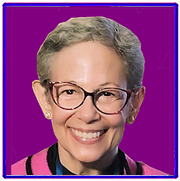 |
| |
|
| |
Adele Diamond spoke at CONGRESO FUTURO
- An annual science, arts, and knowledge conference on pressing social, cultural, technological, and political issues, which (since 2011) brings together experts and opinion leaders from around the world.
- organized by the Senate of Chile through the Commission on the Challenges of the Future, the Chamber of Deputies, the Encuentros del Futuro, the Chilean Academy of Sciences, and all Chilean universities.
- She was also interviewed by wonderful journalists including Paloma Ávila for CNN, Paula Molina for Cooperativa Chile, and Pascale Fuentes for Televisión Nacional de Chile (TVN).
| |
 |
| |
|
|
|
| |
View the Let’s Talk Science
virtual symposium
in which Dr. Adele Diamond spoke
broke all records for attendance.
https://letstalkscience.ca/educational-resources/backgrounders/
lets-talk-learning-building-effective-skills-resources
| |
 |
| |
|
| |
Ph.D. student, Jessie Chan,
was awarded a
Carl Leggo Graduate Scholarship in Arts-Based Inquiry
plus two affiliated fellowships:
• Northern Telecom Graduate Fellowship
• Patrick David Campbell Graduate Fellowship |
|
 |
| |
|
|
|
| |
Ph.D. student,
Jessie Chan,
was awarded a
BPOC Graduate Excellence Award from UBC
This award recognizes excellence in research and scholarly performance
by BPOC (Black and People of Colour) graduate students.
|
|

|
|
|
|
|
| |
Ph.D. student, Fatimah Bahrami, was
awarded funding through the
UBC Public Scholars Initiative,
which reimagines the PhD experience for students interested in linking their research to social issues
or public benefit.
G+PS has published a story highlighting
Fatimah's role as a UBC public scholar. |
|
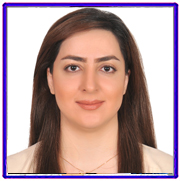 |
| |
https://www.grad.ubc.ca/campus-community/meet-our-students/bahrami-fatimah
|
| |
|
|
|
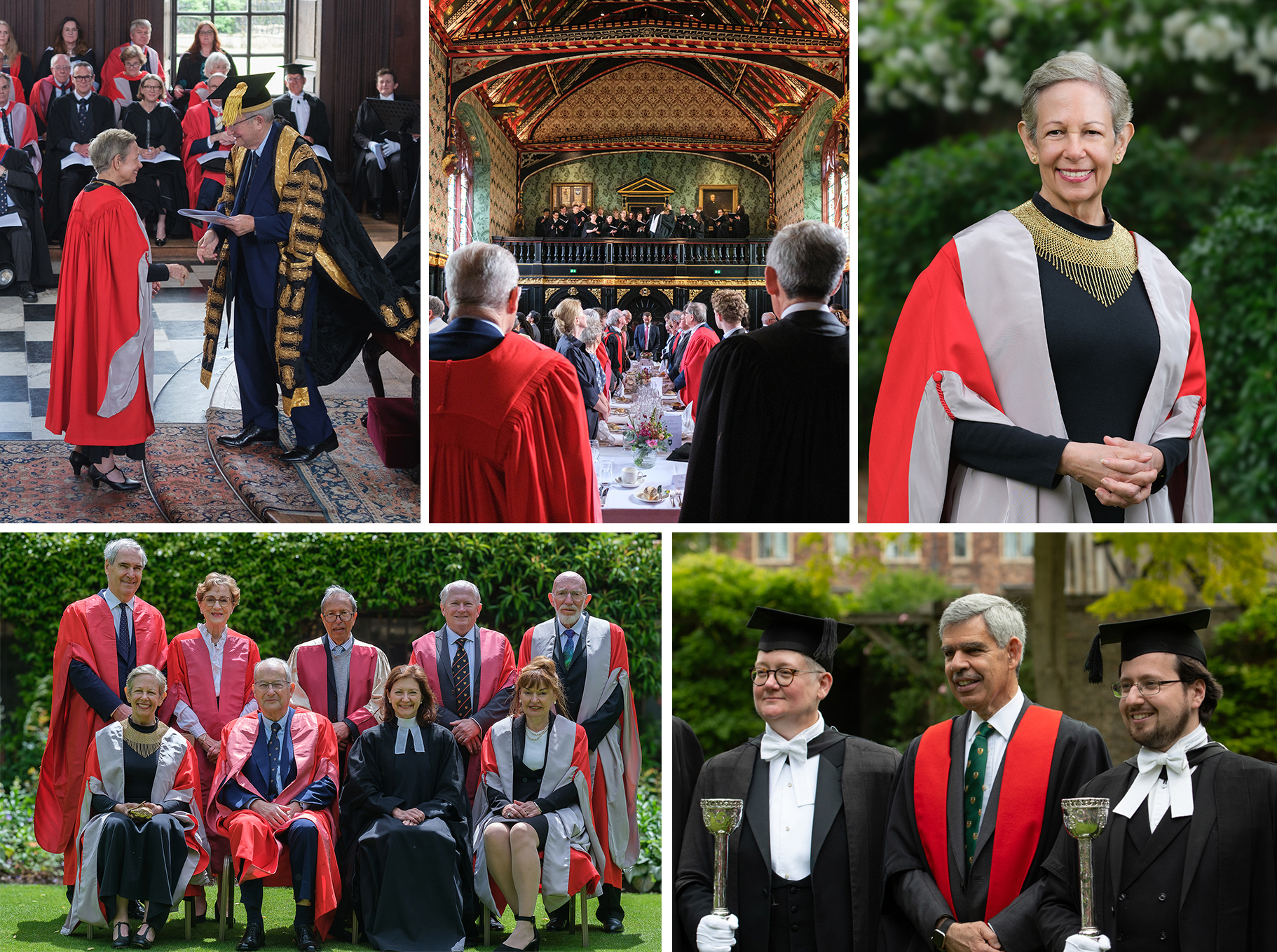
|
|
A few photos from the honorary degree ceremony at Cambridge University
last month at which Adele Diamond was honored
|
| |
|
|
|
| |
The University of Cambridge
has announced that it will be
conferring an
Honorary Doctor of Science Degree
on Adele Diamond
on June 19
Pictured on the right is the procession through town for the Opening
of the Academic Year Address at Maastricht University, which Dr. Diamond
gave in 2007. A similar procession is expected through the town of
Cambridge in June.
|
|
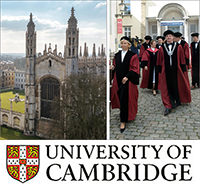
|
| |
|
|
|
| |
Interview of Adele Diamond
Navigating Neuropsychology
podcast
"Executive Functions in the Developing Brain"
by Ryan van Patten (1 March 2024)
https://www.navneuro.com/138
The conversation covers a wide range of topics, including models of EFs,
the differential development of EF components during childhood, the ability
of early EFs to predict later life outcomes, assessment of EFs, and
interventions to improve EFs in children.
|
|

|
| |
|
| |
Research by Adele Diamond was cited in the
Washington Post
newspaper article
"What is ‘normal’ body temperature?
Some experts say it’s not really 98.6."
by Marlene Cimons (19 Dec 2023)
She is quoted in the article as saying,
“Since the 1990s, experts have been saying they should lower
[what is considered normal for body temperature]. What I am saying is,
they should personalize it [because there is too much inter-individual
variability]….[I] suggest physicians establish a normal baseline
temperature for individual patients, much as they do for blood pressure
and other vital signs….There is a need to individualize it.”
|
|
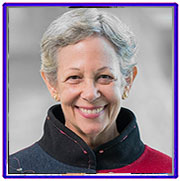
|
| |
https://www.washingtonpost.com/wellness/2023/12/19/normal-body-temperature-986-fluctuations
|
| |
|
|
|
| |
Ph.D. student, Fatimah Bahrami,
is coauthor on a paper that has just been published:
Martial arts, combat sports, and mental health in adults:
A systematic review.
Ciaccioni S., Castro O., Bahrami F., Tomporowski P.D.,
Capranica L., Biddle S.J.H., Vergeer I., Pesce C.
in the journal, Psychology of Sport and Exercise
https://doi.org/10.1016/j.psychsport.2023.102556
|
|
 |
| |
|
|
|
| |
Susan Stephenson did a wonderful job of describing the Joyous Celebration in her blog-- its joy, insights, and sense of community. |
|
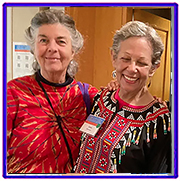 |
| |
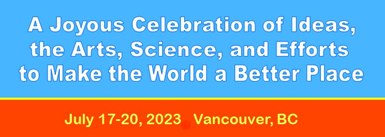
The interdisciplinary, cross-cultural conference Adele Diamond organized, A Joyous Celebration of Ideas, the Arts, Science, and Efforts to Make the World a Better Place, that took place July 17-20 with over 400 attendees from 45 countries was a life-changing, transformative, paradigm-shifting experience for many in attendance. The conference website is http://www.devcogneuro.com/Conf2023
|
|
| |
UBC Grad Studies has published
a story on our
Ph.D. student Lisa Ritland
To read the article, click
here
.
|
|
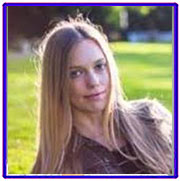
|
| |
|
|
|
| |
Ph.D. student, Lisa Ritland, was
just awarded funding through the
UBC Public Scholars Initiative,
which reimagines the PhD experience for students interested in linking their research to social issues
or public benefit |
|
 |
| |
|
|
|
| |
Recipient of the
Huttenlocher Award,
the Flux Society’s most prestigious award.
Flux is the Society for
Developmental Cognitive Neuroscience
and this award honors a senior scientist who's made
major foundational contributions to the field |
|
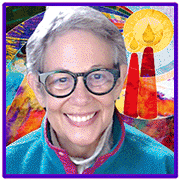 |
| |
|
|
|
| |
One of our papers,
Effects of Capoeira on children’s executive
functions: A randomized controlled trial.
Valter R. Fernandes, Michelle L. Scipião-Ribeiro, Narahyana B. Araújo, Natália Bezerra Mota, Sidarta Ribeiro, Adele Diamond & Andréa C. Deslandes
has just been published in
Mental Health & Physical Activity
The article can be seen here:
https://doi.org/10.1016/j.mhpa.2022.100451
|
|
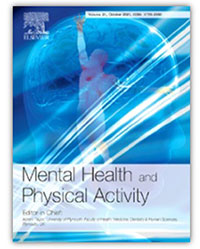 |
| |
|
|
|
| |
High school senior, Edith Bachmann, placed third in the Behavioral Sciences category of the Regeneron International Science and Engineering Fair in Atlanta, GA, for the research on storytelling she did with us.
|
|
 |
| |
|
|
|
| |
Ph.D. student
Lisa Ritland
was just awarded a
Friedman Award for Scholars in Health
a UBC fellowship
for research outside of Canada.
Lisa will spend 6 months in Melbourne, Australia.
|
|

|
| |
|
|
|
| |
Ph.D. student
Rabia Mir
was just awarded a
Doctoral Research Award: Canada Graduate Scholarship
by the
Canadian Institute of Health Research
|
|
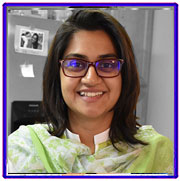
|
| |
|
|
|
| |
High school senior, Edith Bachmann, won the Westchester Science and Engineering Fair for the research on storytelling she did with us. She is now advancing to the International Science and Engineering Fair, based on her first place finish in the behavioral category in the Westchester Fair.
|
|
 |
| |
|
|
|
| |
Two posters first-authored
by graduate student, Daphne Ling:
"Science communication: Using pop culture to teach children about the brain and behaviour"
"Dopamine: A tale of two cities"
have been accepted for the International Behavioural Neuroscience Society Annual Meeting, Glasgow, Scotland, June 7-11 |
|
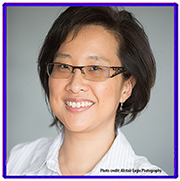 |
| |
 |
|
 |
| |
High school senior, Edith Bachmann, has been ranked in the top 300 out of 1,805 students in the Regeneron Science Talent Search (the oldest and most prestigious science and mathematics competition for high school seniors in the US) for the research project she did under Prof. Diamond’s |
|
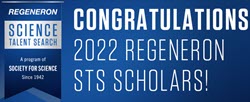 |
| |
supervision (“The Effects of Storytelling versus Story-Reading on the Executive Functions of Fourth Graders”)." |
| |
|
|
|
| |
In recognition of Adele Diamond's longstanding
efforts to help Maasai children in Kenya receive a quality education, a prominent Maasai educator,
Loise Nashepai, has founded the "Adele Diamond Foundation" to help other needy children in Kenya attend school.
| |
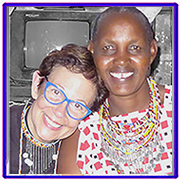 |
| |
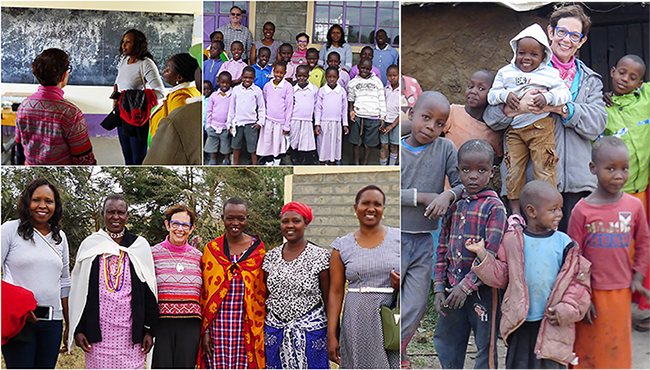 |
| |
| |
Ph.D. student
Fatimah Bahrami
just received UBC’s
Faculty of Medicine Graduate Award
|
|

|
| |
| |
Centre for Brain Health’s
announcement
about the results of our new paper:
The latest research from the Diamond lab suggests 37.0°C
body temperature should not be considered normal for everyone.
Her team suggests body temperature should be personalized.
|
|
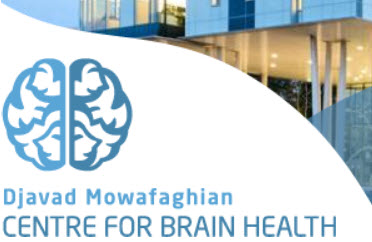
|
| |
| |
We just had a paper published
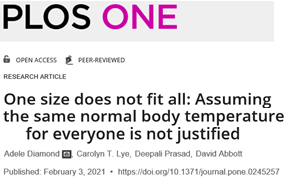
The avg. body temp. in our study was 97°F (36.1°C). Using 98.6°F as the assumed normal temp. will result in errors when using temp. to screen for COVID. Fevers can be missed in those with low normal body temp. Infected people can thus pass screening.
The article can be seen here:
https://doi.org/10.1371/journal.pone.0245257 |
|
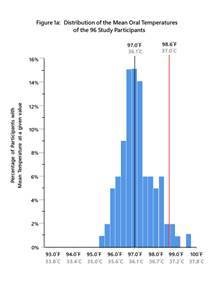 |
| |
| |
| |
Paper just published in
Frontiers in Psychology:
Children only 3 years old can succeed at Conditional
“If, Then” Reasoning, much earlier than anyone had thought possible.
Daphne S. Ling, Cole D. Wong, & Adele Diamond
https://doi.org/10.3389/fpsyg.2020.571891
That conditional, if-then reasoning does not emerge until 4–5 years
has long been accepted. Here we show that children barely 3 years old
can do conditional reasoning.
All that was
|
|
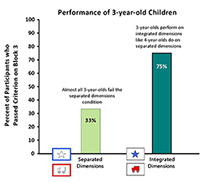
|
| |
needed was a superficial change to the stimuli:
When color was a property of the shapes (line drawings of a star and
truck) rather than of the background (as in all past conditional
discrimination testing), 3-year-olds could succeed.
The findings suggest that scaffolding preschoolers’ emerging conceptual
skills by changing the way stimuli look (perceptual bootstrapping)
enables 3-year-olds to demonstrate reasoning abilities long thought
beyond their grasp. The ways we have traditionally queried children may
have obscured the budding reasoning competencies present at 3 years of age.
|
| |
|
Among the
top 10 most downloaded papers in 2020
from Annual Reviews across all fields
is our article on Executive Functions
Annual Rev of Psychology in 2013
Available for free download for a limited time at:
https://arevie.ws/3aYt32Y
| |
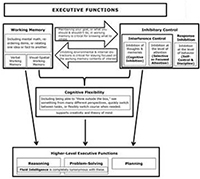 |
| |
| |
| |
Paper accepted for publication:
Diamond, Lye, Prasad & Abbott (2021)
"One size does not fit all:
Assuming the same normal
body temperature
for everyone is not justified"
PLOS ONE
|
|
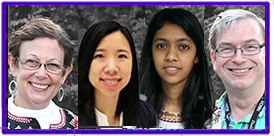 |
| |
|
|
|
| |
|
|
|
| |
|
|
|
|
|



